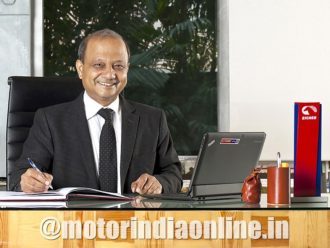The CV industry is faced with a double whammy of sluggish growth out of a recessionary scenario since last year and the pandemic at present. However, positive sentiments based on objective and constructive steps taken by the government will generate confidence among buyers, opines Vinod Aggarwal, Managing Director and Chief Executive Officer, VE Commercial Vehicles.

Impact on Business and Recovery Strategy
This is an unprecedented scenario for everyone, bringing all businesses in India and most parts of the world to a standstill. We at VE Commercial Vehicles are assessing what is to be done and trying to cope up with the impacts of the lockdown. Our priority at this point is to restart our plants and processes of dispatching spares to our service network. Next on our priority is to serve some export customers, including the supply of engines to Volvo Group companies in Europe and Asia; we have also started making some aggregates for our customers in the USA.
Our third priority is to dispatch vehicles to our dealers and customers, in particular, those that were already sold but couldn’t be delivered owing to lockdown. There are challenges in this regard even now, including difficulties in crossing state borders, shortage of drivers to deliver them, and lack of means for them to return after handing over the vehicles. Lastly, stock-taking activities are given prime importance, which is usually done at the end of every financial year.
We shall be commencing our production in a small way with 33 percent of the workforce from now, with all preparations and precautions including measures of sanitization, social distancing, and personal hygiene to keep our employees safe. Thus, productivity levels are expected to be low. However, once we start operating, this will put some word of confidence and positive pressure on all those in our ecosystem to resume their respective operations. In a nutshell, our strategy right now is to prepare the entire ecosystem consisting of our suppliers, dealers, employees, and so on to bounce back from the lockdown. As an OEM, we have a wider responsibility to keep up with. Things are expected to align back on track in the next 4-6 weeks.
BS-VI Transition
At VECV, we had relative advantages in transitioning to BS-VI. Being the supplier of Euro 6 powertrains to the Volvo Group and immense experience in manufacturing, we are absolutely confident on the product side of this development. We have also put in place the right competencies in the after-sales and service side to assist our customers like no other, including an Uptime centre set up to monitor the health and key parameters of our vehicles remotely. Further, we have no stock of BS-IV left with us anymore, so there is no challenge in that aspect either.
Outlook: Present and Future
As we know, the CV industry was already in recession since last year, with March being the worse with about 90 percent drop in sales. With a pandemic in place, it is a double whammy, as the fortunes of the CV industry are closely linked with the economy at large. Hence, how the economy bounces back holds key to the industry’s revival.
There are some positive aspects to take note, as we have to remain positive and find out where the positive is. For instance, predictions of good monsoon and good harvest can boost rural demand. The government’s infrastructural investments can give an essential boost to construction sectors, while RBI’s pro-active steps on NBFCs and ease of liquidity can help as well. Further, I personally foresee a pent-up demand in the CV space, as the vehicle replacement and pre-buying did not happen as expected in the last one year. Having said that, we have to stay prepared for the worst as well, if in case things do not unfold as we hope them to.
Expectations from Government
To bring the industry back to growth pace, we have to work closely with the government to create demand. The government can consider the auto industry’s pleas to implement incentive-based scrappage policy and rationalization of GST rates at least for some specific period. It can also ease liquidity with STUs, which can create additional demand for vehicles. The entire consumption pattern is dependent on positive sentiments prevailing in the economy. Objective and constructive steps taken by the government to enhance demand in the economy will create a lot of confidence in the minds of consumers.
Medium to Long-Term Impact
The industry will take some time to pick up. It will be a slow and steady start, and once the economy at large starts moving, things will become much better. As far as product technologies, sales and services are concerned, I do not see any significant changes out of this pandemic in the long-run. India is known to make strong comebacks from crises like this in the past. Our people are known to have the required determination to overcome any crisis.